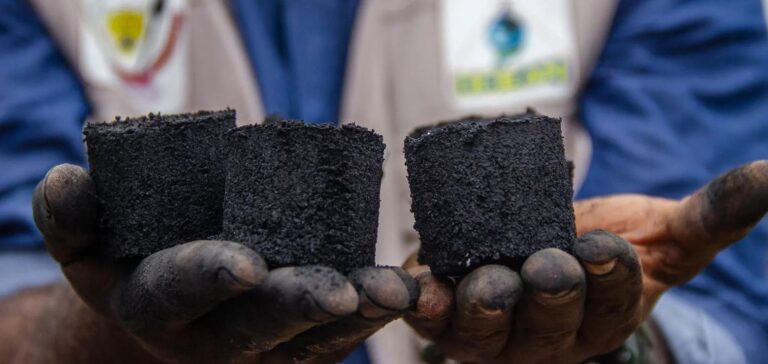The biomass briquette sector is poised for significant growth, with an expected valuation of 1.9 billion USD by 2033.
Currently valued at 0.9 billion USD in 2023, this market is expected to record an average annual growth rate of 7.9%.
This dynamic is mainly fuelled by growing interest in renewable energy sources, as well as public policies aimed at reducing greenhouse gas emissions.
Biomass briquettes, made from compressed organic residues, offer a viable and sustainable alternative to traditional fossil fuels.
Industry players are seeing growing demand for these briquettes, particularly in Asia-Pacific countries, where they are being incorporated into national strategies to reduce carbon emissions.
In China and India, for example, governments are actively encouraging the use of briquettes to limit dependence on fossil fuels and improve energy efficiency.
The success of briquettes in these regions demonstrates their potential to play a key role in the global energy transition.
Dominance of wood briquettes
The wood briquette segment occupies a prominent place in the global market.
These briquettes, derived from wood waste, stand out for their ability to provide renewable energy while minimizing the carbon footprint.
Unlike fossil fuels, their combustion releases a quantity of CO2 in balance with that absorbed by trees during their growth, thus contributing to a more carbon-neutral cycle.
The adoption of wood briquettes is becoming widespread in various industrial sectors, where they are used for heating, power generation and other applications requiring a reliable, sustainable energy source.
This trend is driven by the significant environmental benefits they offer, particularly in regions where environmental concerns are at the heart of energy decisions.
Geographic expansion and future prospects
The Asia-Pacific region, in particular, stands out for its rapid adoption of biomass briquettes.
In India, biomass briquettes have become a viable alternative to coal, encouraged by government initiatives to promote renewable energies.
Similarly, in China, biomass briquettes are widely used in the industrial and residential sectors, reflecting a strong commitment to reducing greenhouse gas emissions.
Future prospects for the biomass briquette market are promising, although challenges remain.
Competition with other renewable energy sources, as well as high initial investment costs, represent obstacles to be overcome.
However, increased investment in production technologies, together with growing demand for carbon-neutral energy, should support continued growth in this market.
Market resilience in the face of challenges
Despite the challenges, the biomass briquette market shows remarkable resilience.
Innovation in production processes, as well as a focus on decarbonizing industries, are driving increased adoption of briquettes as an energy source.
In addition, the ability of briquettes to transform agricultural and forestry waste into useful energy has a dual benefit: reducing waste and providing renewable energy.
As technologies evolve and economies of scale are realized, the biomass briquette market is well positioned to play a crucial role in the global energy landscape.
Manufacturers in the sector must therefore continue to innovate to remain competitive while meeting growing sustainability requirements.






















